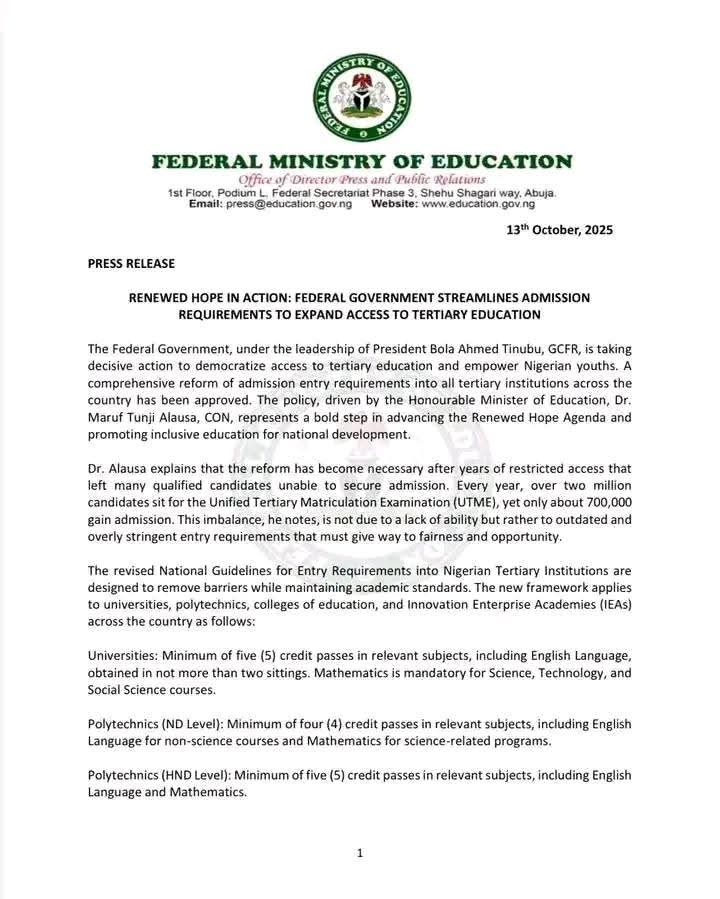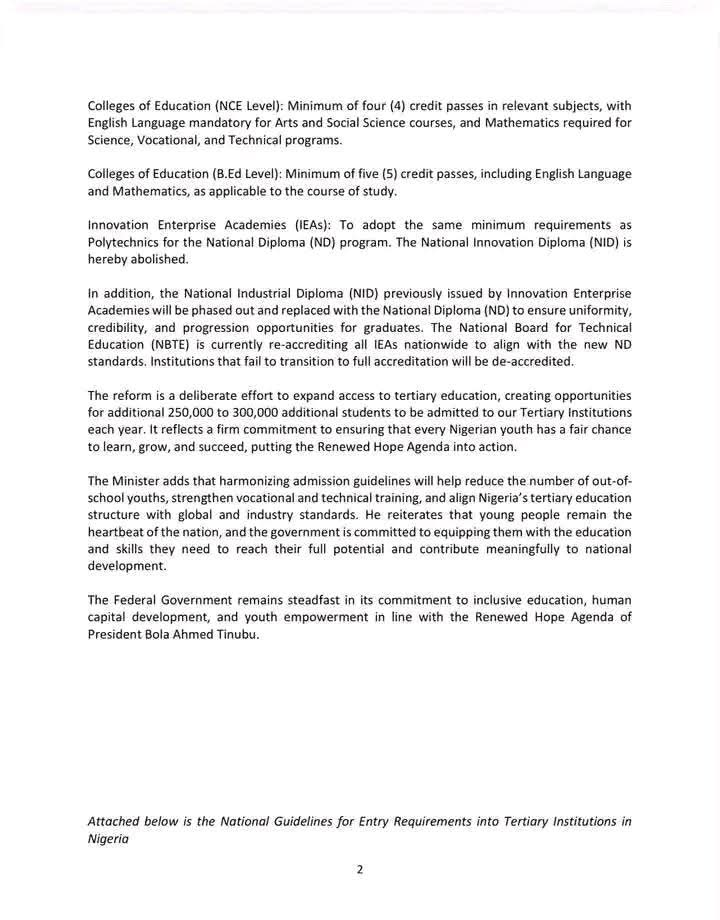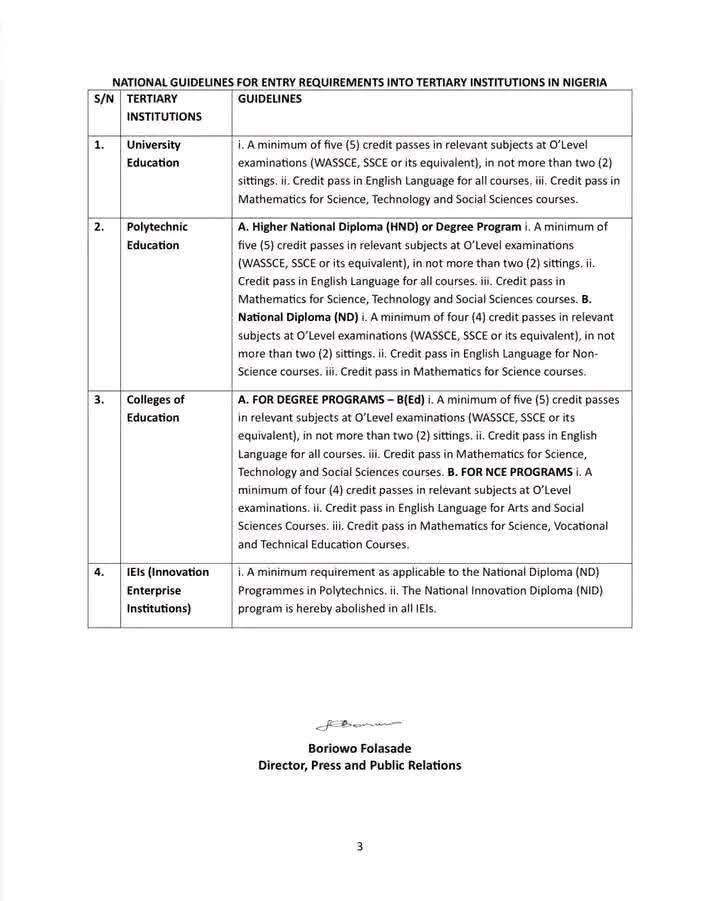The Federal Government has announced a major reform in Nigeria’s higher education admission process, declaring that the Joint Admissions and Matriculation Board (JAMB) examination will no longer be a compulsory requirement for entry into tertiary institutions.
The new policy, introduced under President Bola Ahmed Tinubu’s administration and supervised by the Minister of Education, Dr Maruf Tunji Alausa, aims to expand access to universities, polytechnics, and colleges nationwide.
It is designed to ease the admission process for millions of students who sit for JAMB each year but fail to secure placement due to the system’s strict entry criteria.

Institutions to admit students through SSCE results
Under the new system, tertiary institutions will now be allowed to admit students based on their Senior School Certificate Examination (SSCE) results.
For university admissions, candidates must obtain at least five credits in relevant subjects, including English Language. Mathematics will only be compulsory for science, technology, and social science courses.


For admission into National Diploma (ND) programmes in polytechnics, students must have at least four credits, including English Language.
Higher National Diploma (HND) applicants will be required to possess five credits, including both English and Mathematics.


According to the government, this reform will help eliminate unnecessary barriers and ensure that more students are given a fair chance to further their education.
However, officials clarified that the policy does not abolish JAMB or the Unified Tertiary Matriculation Examination (UTME) entirely.
Instead, it reduces JAMB’s role as the sole admission pathway, granting schools greater autonomy to admit students using SSCE results such as WAEC or NECO.

